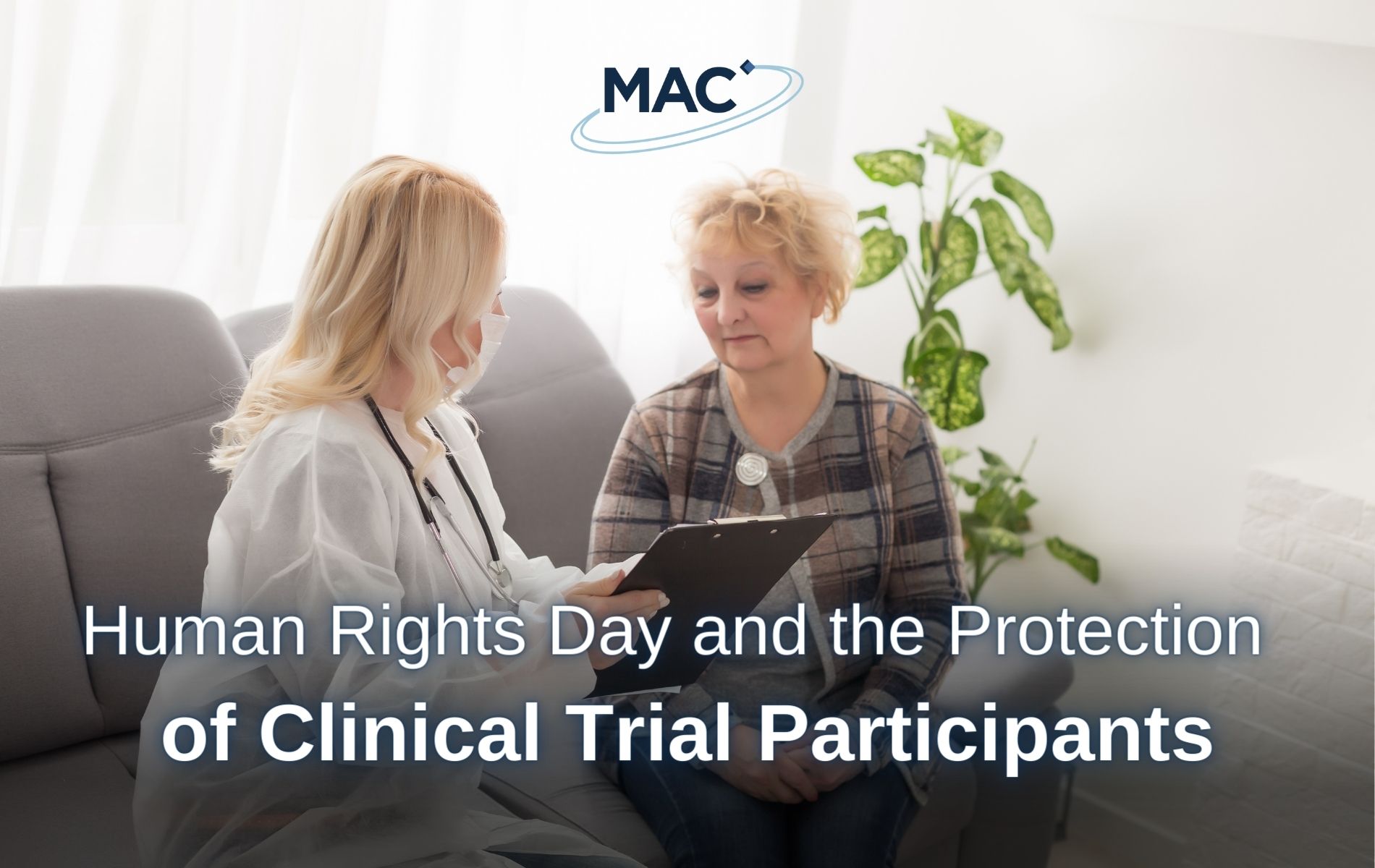As we commemorate Human Rights Day on the 10th December, it is essential to reflect on the ways in which fundamental rights play a part in various aspects of our lives. For us here at MAC Clinical Research, The Human Rights Act is entrenched into everything we do, acting as a guardian and ensuring the protection and dignity of clinical trial participants.
What are Clinical Trials?
Clinical trials are integral to the advancement of healthcare and typically involve participants testing potential new treatments, medications, or devices.
Did you know, between April 2022 and March 2023, almost one million people took part in clinical research across England according to an NIHR report. They reported that in this time, over 100 people in England were enrolled every hour to take part in health and care research. That’s enough people to fill Wembley Stadium over 10 and a half times1.
By recognising the potential vulnerabilities of participants in clinical trials, the Human Rights Act serves as a powerful tool to safeguard their rights and well-being.
The Prohibition of Inhuman Treatment
The right to life and the prohibition of torture or inhuman treatment, established in Article Three2 of the Human Rights Act, are particularly pertinent in the context of clinical trials. For a clinical trial to proceed, stringent ethical standards and regulations are put in place to ensure that participants are not subjected to any intentional harm during the research process. When taking part in a MAC clinical trial, this includes things such as comprehensive informed consent procedures that allow individuals to make autonomous decisions about their participation, including their right to withdraw at any point during the trial.
The Right to Privacy
The right to privacy is another fundamental human right protected by the Human Rights Act as outlined in Article Eight3. This right plays a crucial role in clinical trials as participants’ personal information must be treated with utmost confidentiality to protect their privacy. MAC Clinical Research follows GDPR requirements, and we outline how we use participant data in our privacy policy which can be found on our website. It is crucial that a balance is maintained between scientific transparency and the privacy of individuals; clinical researchers, including those at MAC, adhere to strict protocols to keep participants’ identities anonymous, respecting their right to control their personal information.
The Right to be Free from Discrimination
Article 14 of The Human Rights Act reinforces the right to be free from discrimination4. All clinical trials must be conducted with fairness and equity, involving a diverse participant population that reflects the broader demographics of the communities that may benefit from the outcomes of the research. According to a 2022 NIHR report, 86% of clinical trial participants were white, 4% were black and 4% were Asian. These figures are broadly in line with the 2011 census data on ethnicity across England and Wales5.
Participating in a Clinical Trial
As we celebrate Human Rights Day, it’s crucial to acknowledge the integral role of the Human Rights Act in upholding the dignity and well-being of those who choose to participate in clinical trials. Through this intersection of human rights and clinical trials, we can strive for advancements in healthcare that are not only scientifically groundbreaking but also ethically sound and socially just.
Here at MAC Clinical Research, our friendly, welcoming team is committed to fostering an environment for patients to feel comfortable and safe when taking part in a clinical trial at our clinics.
When you take part in a clinical trial with MAC, not only will you receive the utmost care from our specialist teams, but you’ll also receive a full comprehensive health check-up, which may include an ECG, blood pressure, and blood tests.
If you are interested in taking part in a clinical trial at MAC, find out if there’s one suitable via our current trials webpage.
Depending on the trial, you may receive financial reimbursement for taking part. Reasonable travel expenses or transportation for clinic visits are also provided.
1 NIHR – Annual Statistics 2022/23
2 Equality and Human Rights Commission – Article 3: Freedom from torture and inhuman or degrading treatment
3 Equality and Human Rights Commission – Article 8 protects your right to respect for your private and family life
4 Equality and Human Rights Commission – Article 14: Protection from discrimination
5 NIHR – Randomised controlled trial participants: Diversity data report




